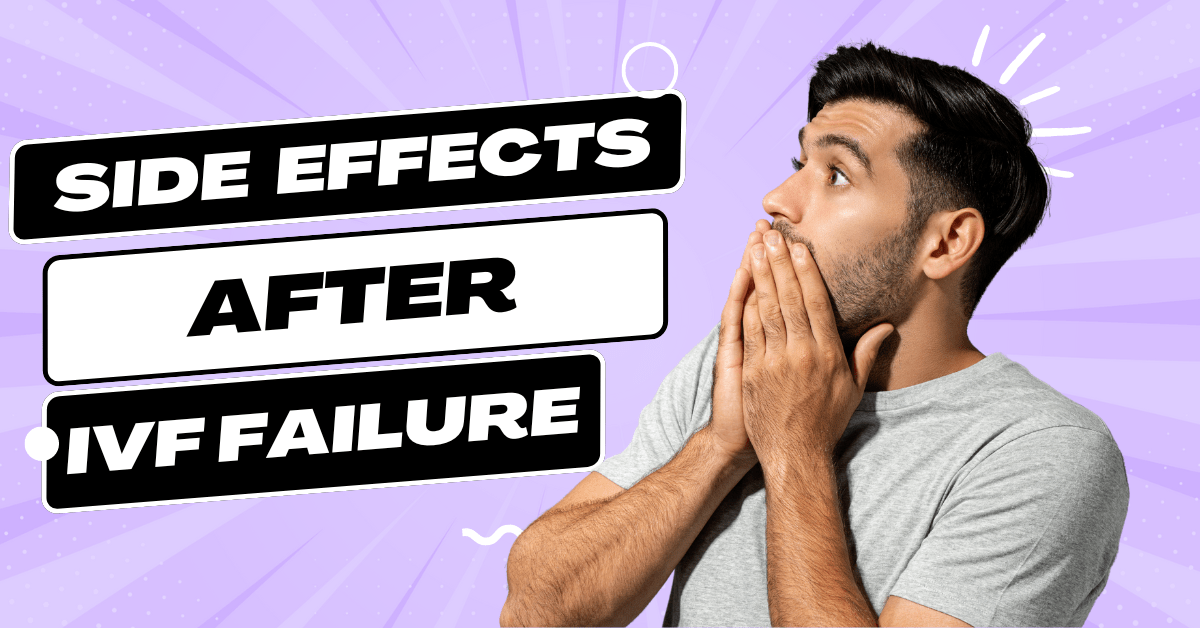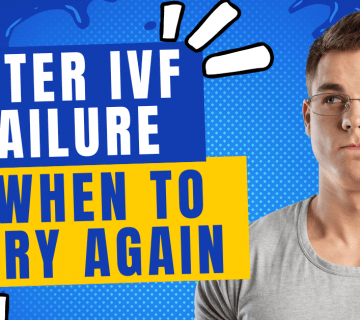The emotional toll of an unsuccessful IVF cycle can be immense. But beyond the emotional impact, some women may also experience physical side effects. This article explores the potential side effects associated with IVF and offers tips for managing them.

Understanding IVF and its Side Effects:
During IVF, medications are used to stimulate egg production and prepare the uterus for implantation. These hormonal fluctuations can cause a range of side effects, some of which may persist even after an unsuccessful cycle.
Common Physical Side Effects:
- Bloating and Abdominal Discomfort: Hormonal changes can lead to bloating, swelling, and abdominal cramping.
- Mood Swings and Irritability: Fluctuations in estrogen and progesterone can trigger mood swings, fatigue, and irritability.
- Breast Tenderness: Increased hormone levels can lead to breast tenderness and swelling.
- Headaches: Headaches are a common side effect of hormonal medications.
- Vaginal Bleeding or Spotting: Light bleeding or spotting is possible following egg retrieval or after a negative pregnancy test.
It’s important to note that:
- Not everyone experiences all these side effects.
- The severity of side effects can vary from person to person.
- Most side effects are temporary and resolve on their own within a few days or with the start of your next menstrual cycle.
Managing Side Effects:
Here are some tips for managing side effects after a failed IVF cycle:
- Rest and Relaxation: Prioritize getting enough sleep and allow yourself time to relax and de-stress.
- Hydration: Drinking plenty of water can help reduce bloating and improve overall well-being.
- Healthy Diet: Eating a balanced diet rich in fruits, vegetables, and whole grains can support your physical and emotional health.
- Exercise: Regular exercise can help improve mood, reduce stress, and promote better sleep. Start low-impact activities like walking or yoga if needed.
- Open Communication: Talk to your doctor about any side effects you’re experiencing. They may recommend over-the-counter medications or other strategies to manage them.
Free Second Opinion:
Understanding your specific situation and exploring all your options is crucial after an unsuccessful IVF cycle. Consider a free consultation with a qualified fertility specialist to discuss your case and explore personalized recommendations for moving forward. This can empower you to make informed decisions about your future fertility journey.
Emotional Support is Key:
Coping with the emotional challenges of a failed IVF cycle is crucial. Consider these resources for support:
- Partner or Loved Ones: Lean on your partner, family, or close friends for emotional support.
- Therapist: Therapy can be a valuable tool for processing emotions and developing coping mechanisms.
- Support Groups: Connecting with others who have similar experiences can provide a sense of understanding and community.
Remember: You are not alone. Many couples experience challenges on their path to parenthood. By prioritizing your physical and emotional well-being, seeking support, and consulting with your doctor, you can navigate this journey with resilience.



No comment